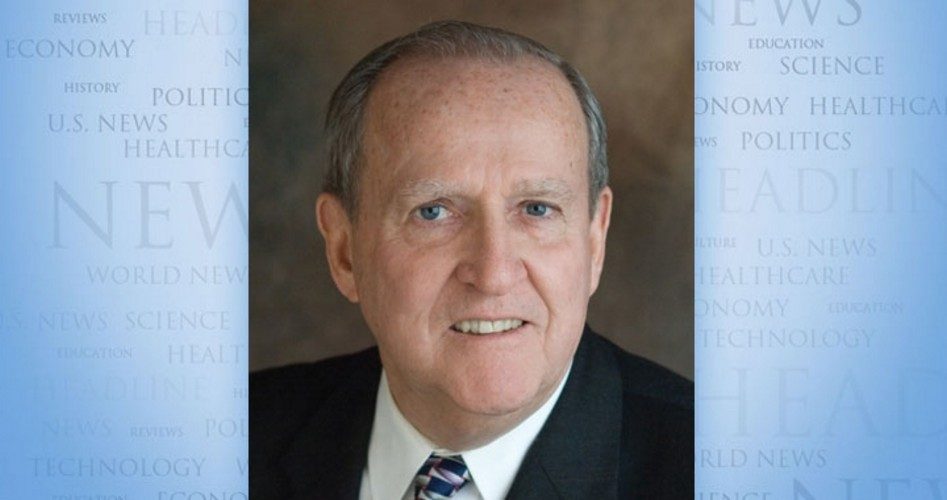
I dutifully watched Donald Trump deliver his State of the Union speech on January 30. The president did a fine job expressing his thoughts about what his leadership had accomplished during his first year, and what he would like to accomplish in the immediate future.
I liked all the introductions of heroes large and small. The female helicopter pilot who rescued many, the Forest Service officer whose bravery saved lives, and Congressman Steve Scalise (R-La.), whose successful recovery from being shot at a baseball field last year was very good news. There were more of these special introductions of remarkable individuals, and each was a good break in what can be termed a tedious bit of oratorical excess.
During another departure from governmental matters, Trump dwelled briefly on the conduct of good Americans when saluting the flag, and when they “stand for the National Anthem.” Without doubt, he used the opportunity to condemn — without naming any — professional football players who have made a habit of kneeling rather than standing during the playing of the “Star Spangled Banner.” What he said was welcomed by supporters, but it didn’t address the nation’s biggest problem.
What is that “biggest problem?” I found the speech terribly disappointing in that the president chose to ignore the enormous national debt, now at $20.6 trillion. He avoided the topic while announcing his intention to spend additional billions for infrastructure, the military, the fight against opioids, continued foreign aid, and more. He delighted in noting that his prodding led Congress to approve a new tax measure that would have the government’s receipts shrink by $1.5 trillion. Where the government’s funds will come from to make up this shortfall, and previously accumulated indebtedness, wasn’t mentioned.
Six years ago, Admiral Mike Mullen, who had been chairman of the Joint Chiefs of Staff, summarized this very real problem as it existed at that time. He stated: “A nation with our current levels of unsustainable debt cannot hope to sustain for very long its superiority from a military perspective, or its influence in world affairs.” Correct! But that was six years ago, and the problem has only worsened.
It would be easy to produce a list of scary figures about the debt currently endangering our nation’s very existence. I’ll present only one: U.S. debt held by foreign countries totals $6.4 trillion, one trillion of which is held by Comunist China. Does the United States still possess any clout to deal with China’s clear intention to expand its influence worldwide? Our leaders can pontificate all they want about military might, but reckless spending has produced a situation where China holds more cards in the potentially deadly game of international politics.
The Democrats chose Congressman Joe Kennedy (D-Mass.) to offer a rebuttal to President Trump’s speech. In effect, Kennedy told his audience, including large numbers of television viewers, that he would spend even more federal dollars. And he, too, never mentioned the threat posed by indebtedness. As for working together with members of the “other party,” he mentioned a sign held up by one of the marchers cheering the Democratic agenda. It said, “Build a wall and my generation will tear it down.” So much for working together with Republicans. Mark Krikorian of the Center for Immigration Studies remarked about the Trump speech, “The Democrats are going to be even less disposed to do anything the President suggests, even if it’s in their interest.”
The share of the enormous debt per American is $63,000; per each American family it’s $170,000. Our nation’s partners in crime, the Federal Reserve and the federal government, allow more dollars to be created out of thin air. Those freshly made dollars derive their worth by stealing the value of all existing dollars. That why prices go up for food, rent, fuel, and everything else. Not only is debt robbing our nation’s ability to act in its own interests, it is subjecting all Americans to domination by our central government.
Ignoring the consequences of national indebtedness isn’t good leadership. Refusing to tell the American people they are being victimized by it is unconscionable.
John F. McManus is president emeritus of The John Birch Society. This column appeared originally at the insideJBS blog and is reprinted here with permission.


